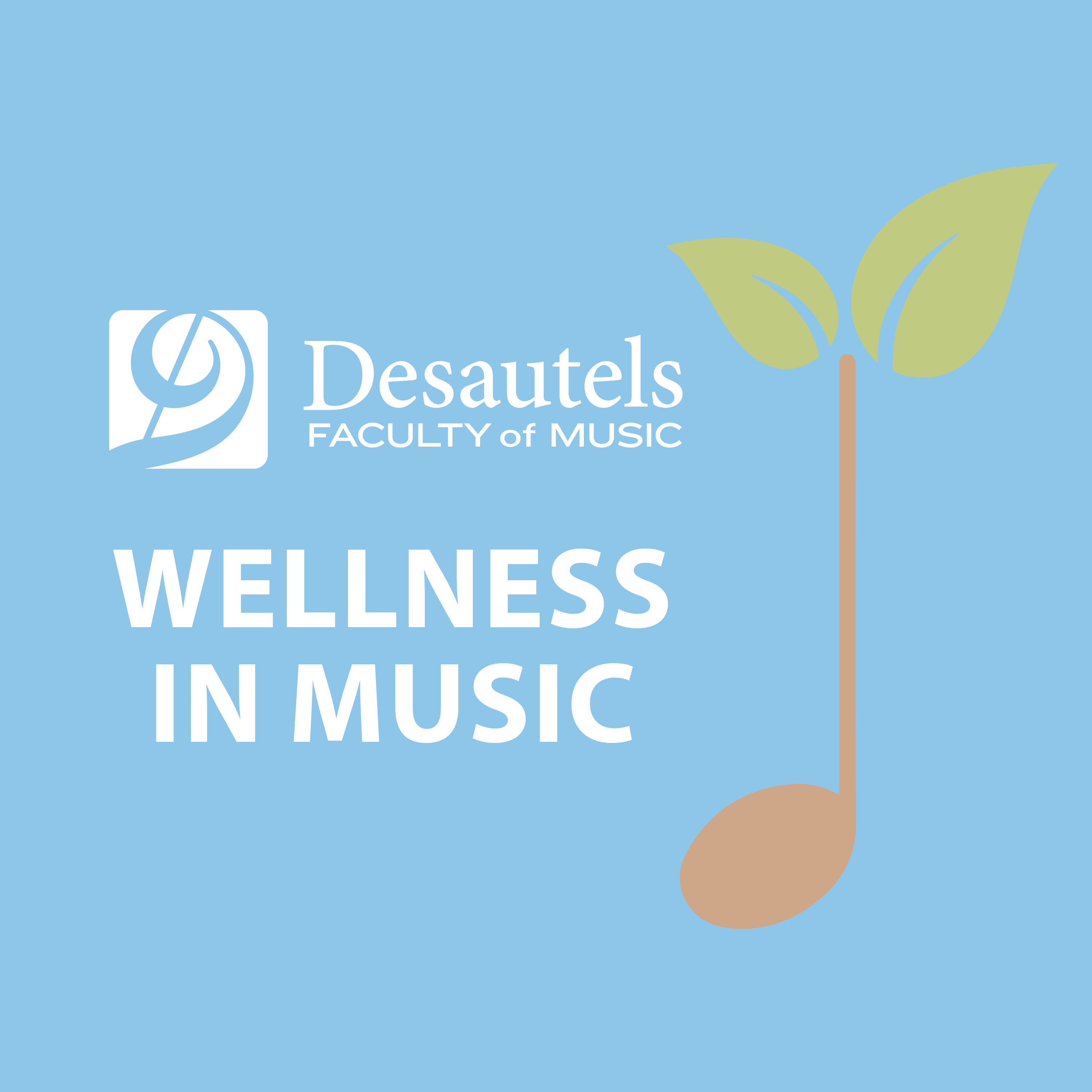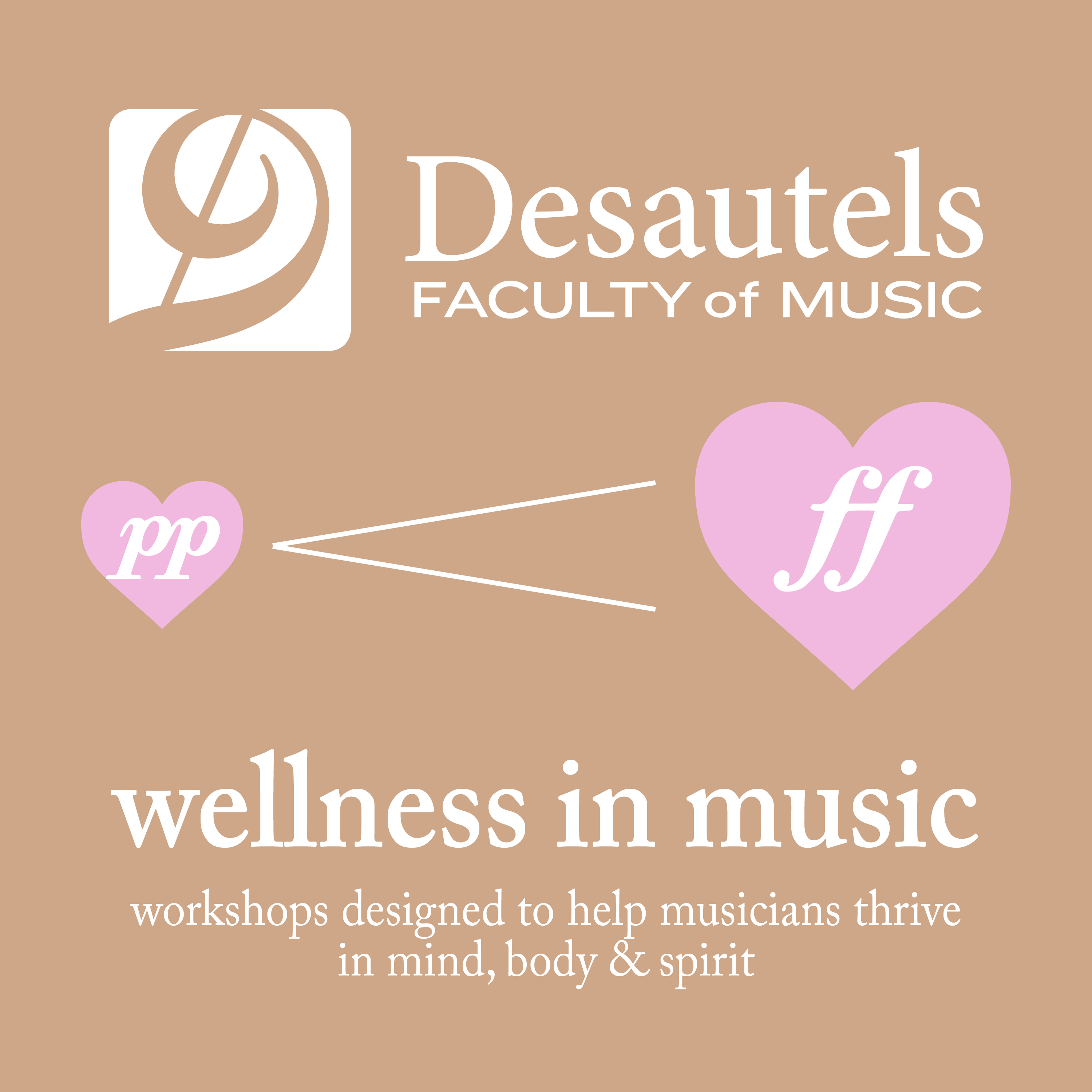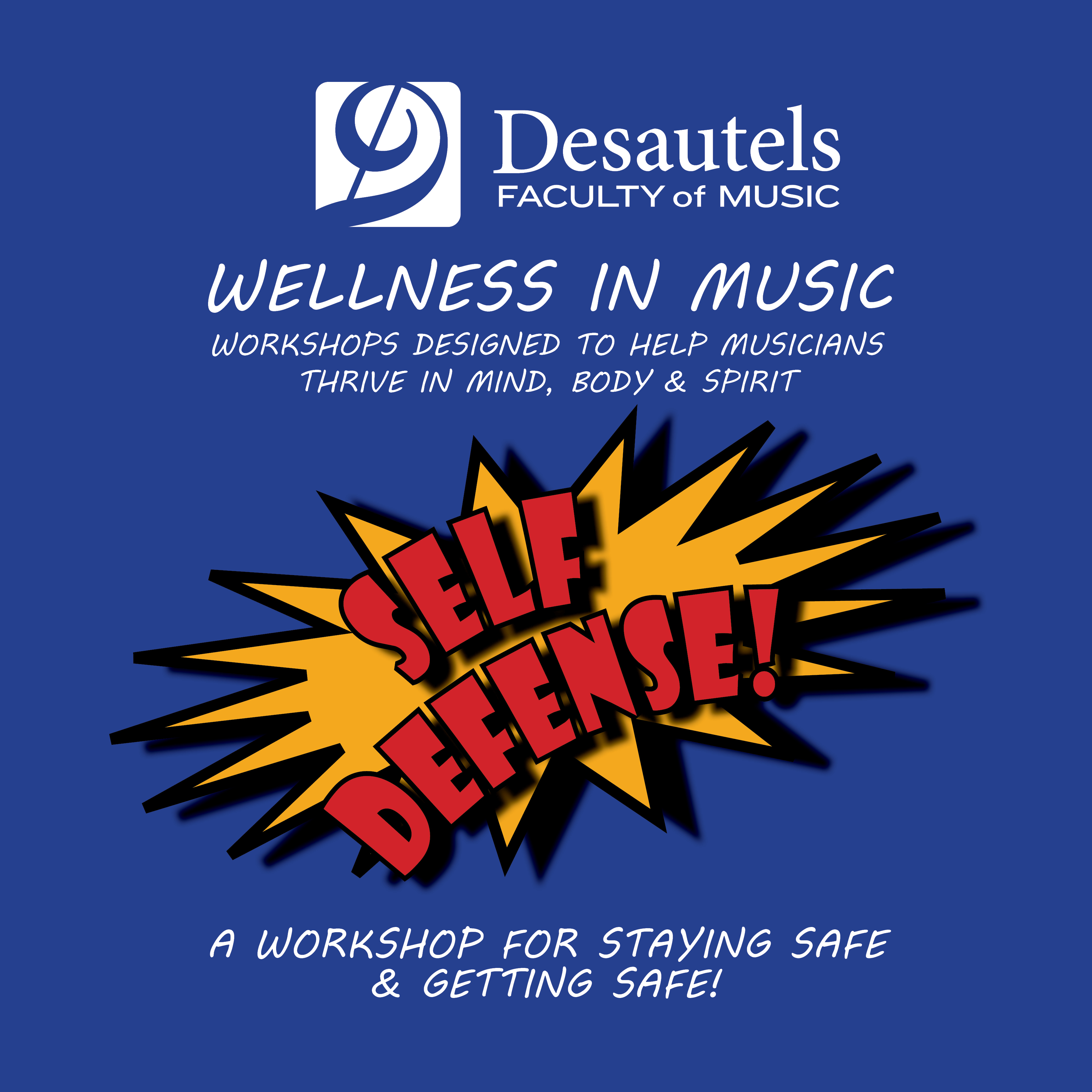Success in Wellness, On Stage and Behind the Scenes
Music can play a massive role in health and wellness. Study after study has found that music can improve all aspects of our lives. Musicians, of course, know about these benefits, especially the many studies that show that music has a significant impact in stress reduction, so it might come as a surprise for some that professional musicians face a significant amount of stress in their lives, even as they’re practicing, creating, performing, and guiding the future of beautiful music.
Interviews on loop
We all face stress in our professional lives. Sometimes it’s a terrible boss, flagging sales, toxic colleagues, an impossible workload, a mistake we’ve made that’s resulted in grave consequences for our company, or even just a sedentary desk job. Musicians certainly find themselves in these situations, too, but they also face an additional stressor that most of us do not: they are always auditioning for their future.
Think of a time when you had to interview for a job you wanted, and how it made you feel: Did you say the right thing? Answer all of their questions? Did they like you? Are you what they’re looking for? If offered the job, will you be successful? Did the interviewers notice the coffee stain on your shirt? Who else interviewed? How long will it take to hear back from the company about the results of their search?
Now, imagine having to go through those feelings EVERY time you walked into work in the morning.
For every role or commission they receive, musicians have to audition. This is compounded by the fact that their competition consists of their peers, their mentors, and sometimes their closest friends. They have to stand in front of a camera or a panel of judges to prove why they are the best person for the job. They are constantly on display. For performers, getting an injury, struggling with mental health issues, developing a chronic illness – or even just getting a mild case of the sniffles at the wrong time – can sideline their careers.
Just the thought of it can be overwhelming and paralyzing. So how can we help musicians maintain their physical and mental wellness in light of these stressors?
Crafting a new type of support
The University of Manitoba launched its Campus Mental Health Strategy in 2014, to “examine all aspects of the university in striving to be a community that is committed, caring, healthy, responsive, supportive, and resourceful.” In doing so, it also earmarked funds for what it called the “Success in Wellness” grants: grants of up to $10,000 that were meant to help the campus community foster positive mental health and well-being, while creating a supportive campus environment.
When the call went out for program proposal submissions, the Faculty of Music Student Association (FMSA) knew that the grant could help students in the Desautels Faculty of Music.
But there was a problem: they found out about the grant only four days before proposals were due. They got to work, and met over the weekend to brainstorm and craft their vision for the grant, and then drafted the extensive proposal and application, with McKenzie Warriner – then senior stick of the FMSA – at the helm.
“Throughout the brainstorming process, we kept coming back to the idea of offering support for the entire musician,” says Warriner, who graduated from the Desautels Faculty of Music in 2019, and is now studying for her master’s degree at the Eastman School of Music in Rochester, New York.
“While the faculty gives students a fantastic academic and artistic education, we felt that we were missing opportunities to build the wellness and self-care skills that are necessary to sustain an artistic career,” she continues. “Music school culture is built around pushing students to the limit, and it’s almost a competition to see who can burn out first.”
FMSA was able to get everything in order for their proposal, and even submitted it a day before the deadline!
“I’d like to thank Professor Jimmy Maiello for teaching students how to write grants,” says Warriner. “I’m not sure we would have pulled it off if I hadn’t practiced grant writing in his Romantic Music History course!”
A short time later, FMSA received a response from the Success in Wellness committee. They’d been approved for one of the grants.
“I was absolutely thrilled when I received the email that our proposal was accepted,” says Warriner.
“As our application was so short notice, I wasn’t sure we would get approved at all, but they granted us all the funding we asked for! We actually received several comments that our application was very well-thought out, so I think that speaks to the importance of the initiative,” she adds.
The culture of music
These stressors for musicians can begin at an early age – long before they are ever offered professional opportunities – and are only amplified at the university level.
Many music schools and faculties engage in the practice of pitting their students against each other, and emphasizing competition, with the thought that it will weed out the “weak,” while allowing the students who remain to grow stronger as musicians. It has long been part of the accepted culture of music-making, and it is incredibly toxic.
Despite the reputation for ruthlessness that exists in the world of music and university-level music education, the Desautels Faculty of Music places a strong emphasis on mentoring, supporting collaboration, and raising up the next generation of great musicians.
You will often find our students and faculty recommending each other for roles, commissions, and gigs, helping each other practice and study, offering encouragement, and consistently showing up to each others’ concerts and performances in order to be the first to offer their peers a standing ovation. It’s wonderful to see members of the Desautels Faculty of Music lifting each other up, and serves as a welcome reminder that the etymology of the word “diva” (or divo, when referring to men) was originally a compliment to describe someone as an ethereal, angelic, and transcendent presence on stage. Our students are godsends to each other.
That said, our talented students graduate into a world where many musicians have been taught to be cold-blooded in their pursuit of greatness, despite the fact that this behavior frequently leads to destructive results, both in the music performed, and in the lives of all the musicians involved, including the aggressors. To make matters worse, musicians often hide their fears, injuries, and stresses from others, which can lead to a very lonely experience.
So what is the solution?
Desautels students and faculty members want to change the culture from the ground up.
“If we place a sustained emphasis on wellness in music, our students will graduate into a world where they take that mentality and practice into their own teaching studios and professional roles,” says Laura Loewen, an associate professor of collaborative piano in the Desautels Faculty of Music.
“As more of our graduates enter the professional world, we can help to gradually transform the overall culture of music,” she adds.
“By placing physical and mental wellness at equal importance to artistic growth, we are not only creating a healthier environment for current students, but we are helping to change the wider music community for the better as the alumni of our faculty bring a new perspective into their work as performers and educators,” echoes Warriner.
Implementing change
When Laura Loewen was named as the acting dean during the search for a new dean, she originally thought that her role was to act a placeholder, keeping the faculty together until a new leader was brought in. However, she soon realized that there were small ways in which she could bring her work as a professor and musician to the role to improve the musical lives and futures of students. She has long been a champion of collaboration, and remembers what it is like to be a student.
“Universities are good at creating stressful situations for students,” she says, pointing out that it is important for all programs to create bigger challenges as studies advance in order to prepare students for the stressors they will likely face in their professional lives.
“However, universities are not very good at teaching students the skills they will need to deal with those stressors,” she adds.
While FMSA was preparing for their first presentations and workshops under the Success in Wellness grant, Loewen was working with faculty members to design workshops and presentations to help student musicians thrive.
“It’s a life full of such joy, but also of precision and huge demands, both internal and external” she says. “This was our way of marrying those two things and bringing them together.”
In the fall of 2018, faculty members presented the first of their wellness series, a “practice panel” that featured Desautels professor and instructors talking about their practice philosophies, how they learn from mistakes, and how they embrace challenges in the process of learning something new.
“We wanted to teach students, right at the beginning of the year, effective, helpful tools that would be at the top of their minds when it came time to prepare for finals,” Loewen says.
“Most of the time as a student, you’re terrified of making mistakes,” she adds. “We wanted to present them as being something beautiful and important.”
The session ended with a question-and-answer period, and students were so engaged in the session that the faculty decided to make the session an annual presentation. The faculty followed up with two more presentations: one focused on finding support, led by Eckhardt-Gramatté librarian Katherine Penner, who walked students through all of the tools available in the library that will help them succeed; and one on being active, led by University of Manitoba Active Living Centre personal trainer Daniel Jangula – a musician in his own right – who led students through exercises designed to improve a musician’s core strength, tailored to the instrument each participant played.
A group of faculty members that runs together invited students to attend one of their group runs/walks, and the enthusiasm of the students led Desautels percussion instructor Victoria Sparks to formalize the runs, creating the Desautels Running Club, which meets regularly for group runs and external races. Desautels Faculty of Music dean Ed Jurkowski, an avid walker, also hosts group walks on campus.
FMSA then took up the charge, and the courses they designed were inspired by activities that students had been exposed to at external summer programs they’d attended, which had included movement exercises like yoga and the Alexander Technique, which focuses on helping participants unlearn the behaviors that negatively affect their posture and can lead to injury.
“We were affected so positively by the experience that we wanted to bring it to U of M,” says Warriner.
“Not only does physical awareness prevent stress-related injuries, but it improves musicians’ overall well being. Thus, we really enjoyed bringing in yoga and Feldenkrais classes,” she says.
“Another highlight was a presentation by a sports psychologist, who gave us an interesting perspective on performance anxiety and mindfulness,” Warriner adds.
“While the U of M does offer counselling services, there aren’t really opportunities to engage with performance psychology, so it was really important to us to give students an introduction to the resources available.”
This thinking is helping to legitimize and give a voice to the issues that musicians had previously been dealing with privately, and is helping to give them the courage to open up about their struggles, fears, feelings, and injuries in their professional lives.
A new tradition is made
The success of that first year focused on Wellness in Music has spilled into the current academic year, with both FMSA and faculty members continuing to design and host wellness workshops for musicians in order to create a healthier culture.
“We chose to continue with the Wellness in Music series this year because we believe that this topic is so important in every person’s life,” says Jane Petroff, current FMSA senior stick. “There are unique challenges faced by musicians and music students that need to be addressed.”
“The academic standards for students in the Faculty of Music are higher than in many other faculties,” says Petroff.
“Many hours of the week are spent in rehearsals, which often take place well into the evening, and students spend hours alone in the practice room every day. These demands are in addition to homework and classes that most students have to deal with. Knowing the unique circumstances that music students face, it seems extremely important for us to provide students with resources for maintaining their mental and physical health,” she adds.
So far this year, FMSA has hosted two wellness-centred workshops. The first, called “Stress Management for Musicians” was led by mental health counselor Heather O’Neale, who ran two sessions in which she explained the effects of chronic stress on the body and mind, then provided tips for coping with and managing stress, both as a student and a professional musician. Petroff says the turnout was fantastic.
“We were thrilled to see so many students in attendance and participating enthusiastically,” she says.
The second workshop focused on self defense, led by trainer Jason Paul, who taught students how to verbally, psychologically, and physically defend themselves against aggression and violence.
“As the school year progresses and stress builds, we often neglect our health,” says Petroff.
“Having built-in opportunities to do something good for your body, some of which are for midday credit, is extremely useful. It gives students the opportunity to try something they might not seek out on their own time, or might not have access to,” she adds.
In winter term, students can look forward to two yoga sessions with instructor Sam Manchulenko at the beginning of the winter term. FMSA is also looking into holding another Feldenkrais workshop, and a presentation on mindfulness to help ease the stress of the end-of-year crunch, while faculty are continuing with wellness workshops.
The takeaway
“We hope that students will learn techniques to cope with stress, fatigue, burnout, performance anxiety, and any other mental health struggles that are so common for music students,” says Petroff. “We also want them to realize just how normal it is to feel what they are feeling, and how many of their peers are experiencing similar things, so that they feel more connected and less isolated,” she adds.
“Overall, we want students to leave these presentations feeling more equipped to lead a healthy and balanced life,” she says.
“I hope students leave the workshops with a new perspective on what it means to improve as a musician. Maybe growth doesn’t always mean constantly pushing forward – maybe you have to take a step back and put your personal well-being first,” says Warriner.
“I also hope students feel less alone. The Desautels Faculty is already so nurturing and tight-knit, but now there is a greater collective awareness of the challenges we face as musicians, and the strategies we can use to help ourselves and others,” she adds.
“Even if a student doesn’t attend any of our events, they will see the posters around the school and know that there are students and staff who value their wellbeing. The DFOM placing an emphasis on wellness is crucial to creating a safe and healthy environment for our student body, and I hope that this continues long after the grant expires. We are incredibly grateful to Success Through Wellness for their aid!” Petroff says.
The Desautels Faculty of Music is very thankful that the Success in Wellness grants, the Campus Mental Health Strategy, and the University of Manitoba are helping us to make transformative changes that will help to improve the lives of musicians.









